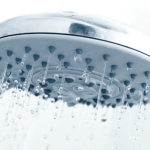Protect Your Hot Showers and Steaming Tea with Proactive Hot Water Heater Repair
When the cold winter nights arrive, there's nothing better than a warm shower and hot tea to fend off the chill. But, too often, a homeowner will experience a heating nightmare on a cold night: a busted water heater.
Water heaters provide the hot, clean water needed to run the dishwasher, clothes washer, shower, and sinks. Without it, the home can become cold and uncomfortable quickly. With water heaters, it's cheaper and altogether better to prevent a failure from happening. Keep reading to discover three signs that a hot water emergency may not be too far away.
Low Hot Water Pressure
It may come as a surprise that the water heater also impacts water pressure and flow into the home. While the heater's primary role is to warm water for the home, problems within the heater can reduce water pressure, usually for one of two reasons.
First, the water heater valve may be partially closed. This is a simple problem easily fixed by switching the valve completely open. Second, sediment may have built up in the heater. The sediment can be minerals from the water, sand, or even rust. When sediment builds up through the water heater lines, the flow of water becomes reduced, increasing pressure within the heater itself. This creates a dangerous situation where the water heater can explode from the pressure in extreme instances. When water pressure drops, it's best to reach out to a plumbing professional to handle the matter safely.
Strange Sounds

Homeowners should investigate strange noises coming from any home appliance, which holds true for the water heater. Three common noises that indicate a heater problem include screeching, crackling, and popping.
Screeching indicates a water flow restriction. This can often lead to low water pressure and usually signals that the water heater valve isn't fully open.
Crackling is a less serious noise to have coming from the water heater. While annoying, the sound usually indicates condensation on the burner. As the condensation burns off, the noise will disappear. If this is a frequent problem, a plumber should be called to identify the source of continued condensation.
Popping is a more serious noise to take heed of coming from the water heater. Popping is a sure sign of sediment build-up in the unit. This often can be paired with low water pressure and is a sure sign that a plumber needs to be called to conduct maintenance on the water heater to prevent pressure failure or possible combustion of the unit.
Fluctuating Water Temperature
When the home's hot water has become unreliable and elusive, the water heater may be at fault for one of two reasons.

The first is a familiar perpetrator: sediment build-up. When sediment builds up in the heater, water becomes trapped beneath it. The water beneath will boil and heat but be unable to reach the rest of the house. A plumbing specialist can remove the sediment to resolve the issue.
The second problem may be the thermostats of the water heater. Water heaters have two thermostats that work in tandem to control the water temperature. When one fails, they can't regulate the temperatures. Typically these parts need to be replaced and installed by a plumber.
Hot water is a necessity for a comfortable home in the cold of winter. Whenever there are signs of water heater failure, it's essential to reach out to a qualified plumber as soon as possible to prevent damage and solve the problem fast.
About All Clear Plumbing
Since 1952, All Clear Plumbing has been providing detailed, diligent work for the Essex County community. Family owned and operated, All Clear Plumbing treats their clients' homes like their own, leaving not a trace of their work behind. They strive to provide only the best service to their customers, providing live service 24/7. Call now for water heating services!














